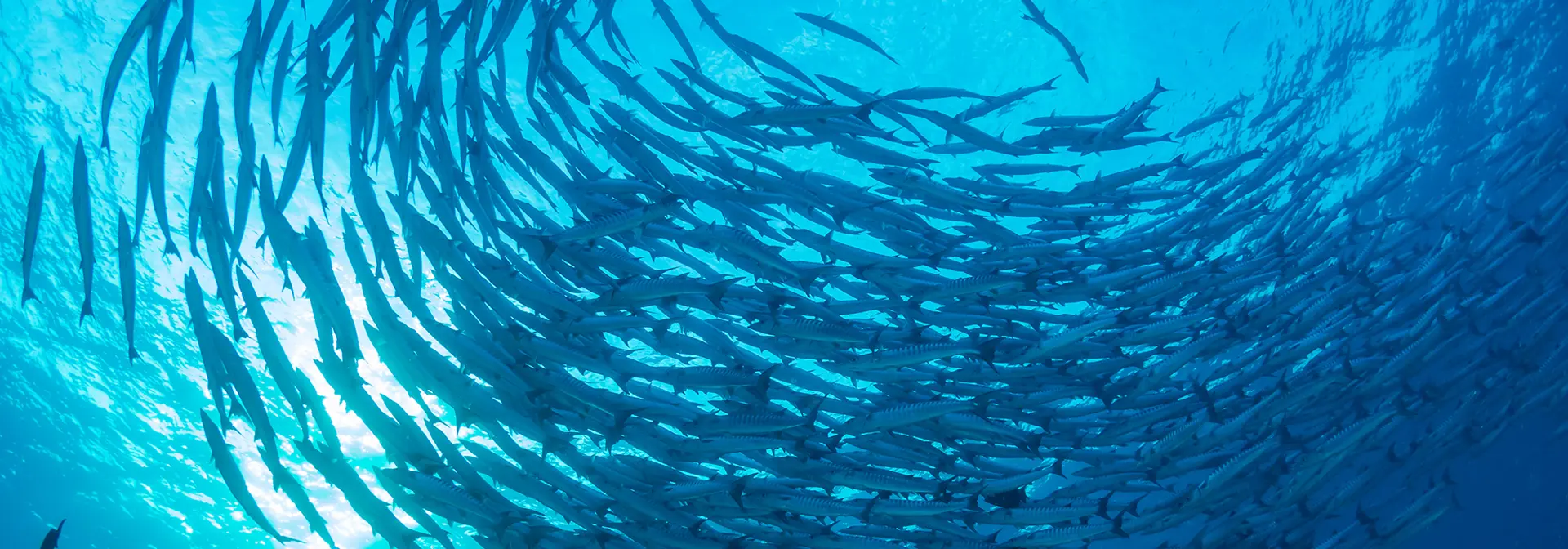MarineGuardian

Researchers at The Lyell Centre are leading a study into reducing bycatch of vulnerable species in the West of Scotland.
Around 4 million tonnes of unintentional bycatch is caught globally every year, and can include sharks, rays, dolphins and critically endangered species such as turtles and seabirds.
As part of the 4-year EU - Horizon Europe MarineGuardian project, fisheries science and industry experts will aim to develop more sustainable fishing practices by testing new innovations, such as fishing gears and other technologies, at seven distinct marine regions across the globe.
Running concurrently with the West of Scotland study, which is led by Bicentennial Research Leader Professor Paul Fernandes and team, researchers from partner institutions will develop and demonstrate fishing gear, equipment, technologies, and practices that reduce the negative impacts of fishing in Greenland, the Barents Sea, Newfoundland, Bay of Biscay, the Iberian coast, and Iceland.
As well as bycatch, the project teams will focus on other areas such as mortality of sensitive species and damage to the marine environment, and develop new technologies to improve the selection of fish species, helping to reduce the unintentional catch of vulnerable species. They will also be used to develop best practices for bycatch management, thereby promoting socially acceptable and economically viable fisheries.
The project will advance the Technology Readiness Level of Smartrawl, a modified trawl invented by Professor Fernandes and supported by the Fisheries Innovation & Sustainability (FIS), that uses Artificial Intelligence to 'sort' fish species and automatically release those not being targeted by fishers. It will also explore other ways onboard vessels can reduce the carbon footprint and seabed impact during trawling.
The full project team is made-up of 21 partners, including ten research institutes, six technology companies, three seafood companies, the Marine Stewardship Council (MSC) and ICES, the International Council for the Exploration of the Sea.